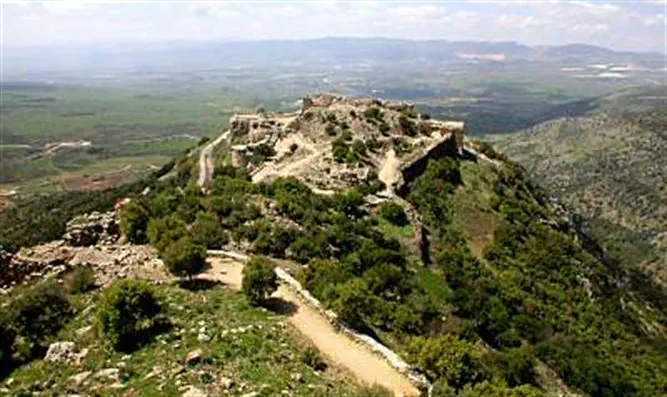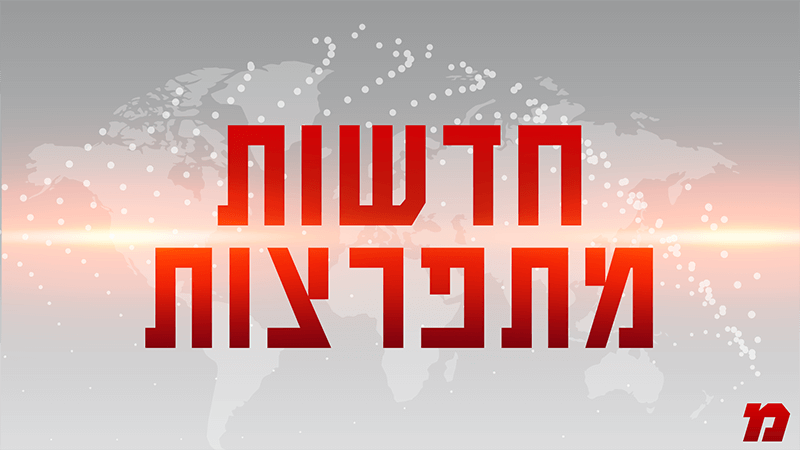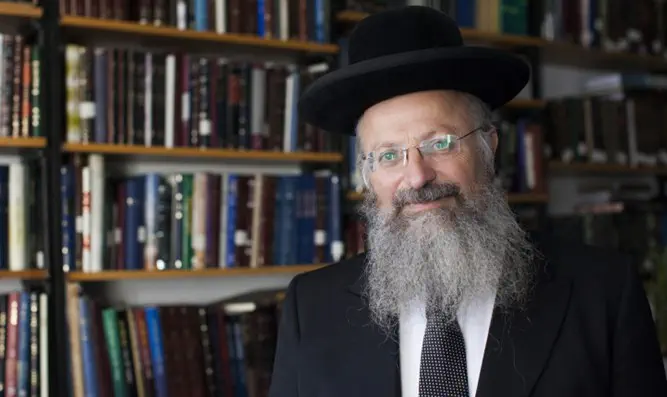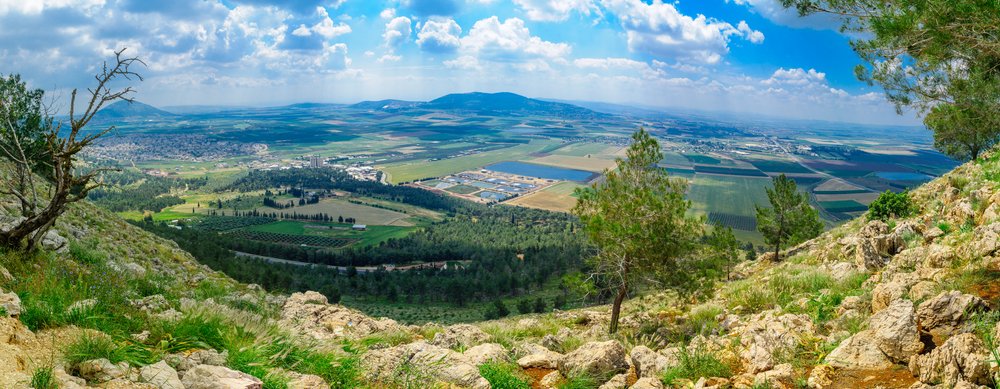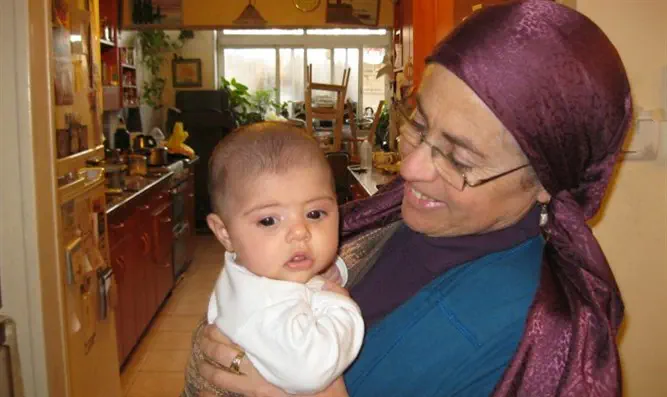Update your Haggadah!
We should regard the events of our times as the continuation of the same process that began with the Exodus from Egypt.
If you want to observe the mitzvot of this coming Pesach properly, you should add to the Haggadah the story of the ingathering of the exiles over the last century, the story of the liberation from the yoke of British and Turkish rule, and that of the successful struggle against our enemies since the establishment of the State of Israel and to this day.
According to our Sages, telling of the present-day miracles is the most basic duty of the night of the Seder. The Rebbe of Chabad once wrote that this is the interpretation of the obligation written in the Mishnah: "In every generation, a person must see himself as though he himself came out of Egypt." We should regard the events of our times as the continuation of the same process that began with the Exodus from Egypt.
The Rebbe spoke in 1990 about the Exodus of Russian Jews after their 70 years of imprisonment behind the iron walls of Communist rule in the Russian bloc countries. He also spoke of the vanquishing of Saddam Hussein, that great enemy of the Jews. Therefore, we bless God in the Passover Haggadah, saying: "Blessed are You, HaShem our God, King of the Universe, who liberated us and liberated our ancestors from Egypt."
This is exactly what the prophets Jeremiah and Isaiah teach us. Jeremiah says, "Therefore, behold, the days come, said the Lord, that it shall no more be said: 'As the Lord lives, Who brought the children of Israel out of the land of Egypt,' but: 'As the Lord lives, Who brought the children of Israel from the land of the north, and from all the countries whither He had driven them'; and I will bring them back into their land which I gave unto their fathers." (Jeremiah 16, 14-15. Brachot 13).
Jeremiah does not invalidate the positive mitzvot in the Torah of remembering the Exodus from Egypt, he upgrades it. He tells us that the story of the guidance of Hashem and His governance in our time describes His greatness and His guidance of our world in a much better way. Aliyah from 102 countries is much more miraculous and amazing than the immigration to Eretz Israel from one country, Egypt.
The story of redemption after 1,900 years of exile in which we survived as a people is much more astounding than the redemption after 210 years of Egyptian exile in which we kept our identity.
The story of the conquest of our country in our times with such a small number of fighters who had not used weapons in 1,900 years is much more miraculous than the conquest of the country in the days of Joshua ben Nun with six hundred thousand armed men and the sons of Gad at their head.
Therefore, we say in the Passover Haggadah: "Therefore, we must thank, praise, acclaim, glorify, exalt, laud, bless, and elevate, He Who has done for our forefathers and for us all of these miracles. He took us out from slavery to freedom, from anguish to joy, from mourning to a holiday, and from darkness to a great light, and from bondage to redemption, and we will sing before Him a new song, Halleluiah."
Note the words "a new song". This means that new songs about miracles that are happening nowadays should be added to the Haggadah, of which songs have not been written yet. And so, we will feel the hand of God managing all of reality.
--
In the opinion of Rabbi Elazar ben Azaria, in the future we will not tell the story of the Exodus from Egypt, but rather of the liberation from all the countries where we were exiled for 1,900 years. As Jeremiah says: "(...) no more be said: 'As the Lord lives, that brought the children of Israel out of the land of Egypt,' but: 'As the Lord lives, that brought the children of Israel from the land of the north, and from all the countries..."
In the opinion of the Sages: “They countered: not that the Exodus from Egypt would be uprooted, rather the enslavement of Israel to foreign rule would be paramount, and the Exodus from Egypt secondary." Although they disagree as to whether we should still tell the story of the Exodus from Egypt today, there is no dispute that we should tell of the miracles of the recent generations.
There are those who do not tell the stories of miracles of our days because they were man-made and not by supernatural miracles. This is a mistake as Purim and Hanukkah also happened through men and we say the prayer "Al Hanissim" [about the miracles] about them. So, do we pray thanks daily: "for Your miracles that are with us every day", and these also are not supernatural miracles.
The truth is that when we make the blessing over bread "Who brings bread out of the land", we are thanking God even though the farmer sowed and harvested the wheat, the miller ground it and the baker baked the bread. Without them, we would not be able to make the blessing, and with them we bless our Father because he gives us the strength to make things. This is how it is in Purim and in Hanukkah and in our days.
Some don't tell these stories because they are not written in the Haggadah. And that's really not a good reason, as in our times we have been privileged to see things that many generations haven't merited. We've been freed from the enslavement of sovereigns who ruled us for 1,900 years, and almost the majority of the Jewish people are already in Eretz Yisrael. In the days of the authors of the Haggadah, these things had not yet happened, but they wrote in the Haggadah that we should sing a new song about them.
In the Rebbe's other talks he brings many other examples of the miracles of redemption that take place today. In a conversation he had with our Master my father [Rav Mordecai Eliyahu ztz"l] and Rabbi Avraham Shapira ztz"l, he mentioned the Gemara which says that the fact that the Land of Israel which was a wilderness for 2,000 years is now providing plentiful fruit is a sign of Exile’s end. "And Rabbi Abba said: You have no clearer sign of the end of the Exile than this, as it is said, (Ezekiel 36) "But you, mountains of Israel, you shall shoot forth your branches, and yield your fruit to My people Israel; for they are close to coming." Rashi interprets this to mean: "when the land of Israel will give her fruit bountifully, then the end [of the Exile] is near, and you have no clearer sign of the end." (Sanhedrin 98/a). And for that we have to be thankful.
The Rebbe also brings the story of the changing attitudes of the nations who acted towards us with anti-Semitism and now have adopted a fairer and more respectful attitude. Also, of the startling changes leading to most countries in the world signing nuclear disarmament agreements, agreements in which 80% of the world's nuclear, biological and chemical weapons were dismantled. That is the fulfillment of the prophecy of "and they shall beat their swords into plowshares, and their spears into pruninghooks; nation shall not lift up sword against nation, neither shall they learn war anymore." And although there is still room for progress, same as the Exodus from Egypt which did not solve all problems - slowly but surely, we have advanced towards the Land of Israel and Jerusalem and the Kingdom of the House of David.
--
The practical application of this Halacha is that each of us on the Seder night should tell the story of his family who came from wherever it was, the story of their settling in Eretz Yisrael, the participation of the family members in defending the Land. Tell this story with the story of the entire people and of the entire country. Tell it in the manner of "beginning with condemnation and ending with praise" - from the exile and the holocaust and the weakness, to rebirth and victory and heroism. And the more one tells – more is he praised.
We should regard the events of our times as the continuation of the same process that began with the Exodus from Egypt.

www.israelnationalnews.com


 www.kipa.co.il
www.kipa.co.il


